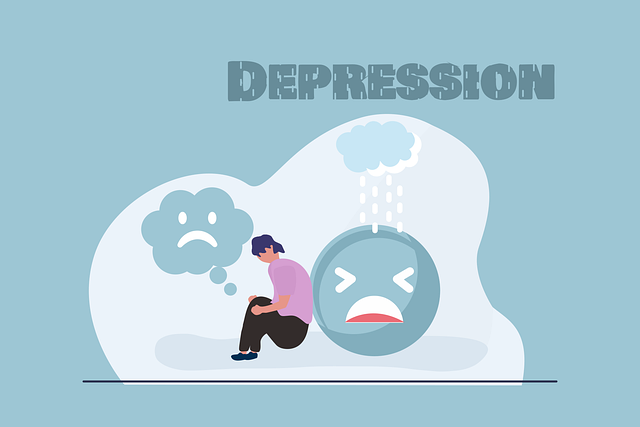Cultural competency is essential in healthcare, especially for therapy addressing alcohol abuse, as it significantly impacts patient outcomes. Understanding diverse cultural beliefs and practices fosters trust between patients and therapists. Organizations like the Stress Management Workshops Organization promote compassion cultivation to overcome biases in provider training. Effective communication tailored to individual backgrounds, languages, and mental health statuses enhances care. Mental Health Policy Analysis and Advocacy addresses cultural nuances and barriers to care, while burnout prevention techniques like mindfulness meditation enhance providers' emotional resilience. Integrating cultural sensitivity into treatment plans, including unique perspectives on mental health and healing processes, leads to more effective recovery interventions that respect diversity.
Healthcare provider cultural competency training is essential in delivering effective therapy for alcohol abuse. In today’s diverse society, understanding cultural nuances is crucial for successful patient outcomes. This article explores key aspects of cultural competency in healthcare, focusing on why it matters specifically for alcohol abuse therapy. We delve into identifying and overcoming biases, effective communication strategies for diverse patients, and integrating cultural sensitivity into treatment plans to enhance therapeutic results.
- Understanding Cultural Competency in Healthcare: Why It Matters for Alcohol Abuse Therapy
- Identifying and Overcoming Biases: A Crucial Step in Training
- Effective Communication Strategies for Diverse Patients
- Integrating Cultural Sensitivity into Treatment Plans for Better Outcomes
Understanding Cultural Competency in Healthcare: Why It Matters for Alcohol Abuse Therapy

Cultural competency in healthcare is an essential aspect that often determines the effectiveness of therapy for alcohol abuse. It involves understanding and respecting diverse cultural beliefs, values, and practices within a community, especially when addressing sensitive topics like substance abuse. In the context of alcohol abuse therapy, cultural sensitivity can make a significant difference in patient outcomes. Many individuals from different ethnic and cultural backgrounds may have unique perspectives on health, wellness, and healing, which can influence their approach to seeking treatment.
For instance, some cultures emphasize collective family support, while others promote individualistic healing practices. Recognizing and incorporating these cultural nuances into therapy sessions fosters a sense of trust and understanding between the patient and therapist. The Stress Management Workshops Organization highlights the importance of compassion cultivation practices and self-awareness exercises in healthcare settings to enhance cultural competency. These tools enable therapists to adapt their approaches, ensuring that alcohol abuse therapy is accessible and meaningful to patients from diverse backgrounds.
Identifying and Overcoming Biases: A Crucial Step in Training

Identifying and overcoming biases is a pivotal aspect of healthcare provider cultural competency training. Biases, often unconscious, can significantly impact patient care and treatment outcomes. These biases may stem from personal experiences, societal influences, or stereotypes about different cultural groups. For instance, a healthcare provider might have preconceived notions about individuals struggling with alcohol abuse, attributing it to lack of discipline rather than understanding the complex interplay of social, economic, and psychological factors. Such perspectives can hinder effective therapy for alcohol abuse, as they miss the nuanced context required to offer tailored support.
By acknowledging these biases, healthcare providers can begin to address them through education and reflection. Cultural competency training equips professionals with tools to recognize and challenge their assumptions. This involves learning about diverse cultural practices related to mental wellness, understanding the impact of systemic barriers, and fostering positive thinking about cultural differences. The Mental Wellness Podcast Series Production can serve as a valuable resource, offering insights into various perspectives and promoting open dialogue on sensitive topics. Ultimately, these steps contribute to creating a more inclusive healthcare environment where every patient receives care that respects their unique cultural background and promotes positive outcomes.
Effective Communication Strategies for Diverse Patients

Effective communication is a cornerstone of quality healthcare, especially when serving diverse patient populations. Healthcare providers must adapt their strategies to ensure every patient receives clear and understanding care, regardless of cultural background, language, or mental health status. For example, in cases of Therapy for Alcohol Abuse, therapists should be trained to recognize and respect the unique perspectives and communication styles of different cultures, ensuring patients feel heard and understood. This might involve learning basic translation skills, using visual aids, or employing non-verbal communication methods.
Mental Health Policy Analysis and Advocacy plays a crucial role in facilitating these conversations. By understanding the cultural nuances and barriers to care, healthcare professionals can develop inclusive policies that promote open dialogue. Additionally, Burnout Prevention techniques, such as Mindfulness Meditation, can enhance providers’ emotional resilience, allowing them to remain patient, empathetic, and culturally sensitive during challenging interactions. These strategies collectively contribute to a more welcoming and effective healthcare environment for all patients.
Integrating Cultural Sensitivity into Treatment Plans for Better Outcomes

Integrating cultural sensitivity into treatment plans is a key strategy to enhance patient outcomes, especially in addressing issues like therapy for alcohol abuse. Healthcare providers must be equipped to understand and appreciate the diverse backgrounds, beliefs, and practices of their patients. This includes recognizing cultural barriers to care and tailoring interventions accordingly. For example, when working with individuals from different ethnic or religious groups, therapists should be aware of unique views on mental health, substance use disorders, and healing processes. By incorporating these perspectives into therapy sessions, treatment plans can become more culturally responsive.
A patient’s cultural context plays a significant role in their emotional healing processes and self-care routine development for better mental health. Culturally competent care promotes a sense of safety and trust, encouraging open communication and active participation in recovery. This approach not only boosts confidence but also ensures that treatment aligns with the individual’s values and beliefs. Through this integrated approach, healthcare providers can create an environment that supports emotional healing while respecting and embracing cultural diversity.
Cultural competency training is a game-changer in healthcare, especially when addressing issues like alcohol abuse. By understanding and overcoming biases, healthcare providers can master effective communication strategies, ensuring tailored care for diverse patients. Integrating cultural sensitivity into treatment plans not only enhances patient outcomes but also fosters a more inclusive and accessible therapy for alcohol abuse, benefiting both provider and patient alike.














